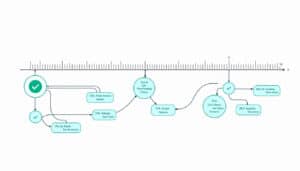The concept test is an essential research method that allows for gathering customer impressions of an idea or product before its launch. By assessing consumer acceptance and willingness to purchase, this approach helps companies make informed decisions and minimize the risk of commercial failure. The stakes are clear: understanding customer aspirations to refine concepts and ensure that products meet their actual needs. The results of a concept test can guide development, influence marketing, and ultimately ensure a successful launch.
🔥 Nous recommandons Ideamap
Ideamap est l’outil idéal pour un brainstorming ou un projet collaboratif. Grâce son interface facile et à ses fonctions IA, Ideamap booste votre créativité tout en favorisant une meilleure organisation de vos idées pour atteindre vos objectifs.
The concept test is a crucial evaluation method that measures the acceptance of a product or service among target customers before its final launch. Indeed, this approach helps companies determine the commercial appeal of their ideas while reducing the risk of market failure.
Functioning as a true barometer, the concept test focuses not only on presenting an idea or feature but also on collecting customer feedback to optimally adjust the project. It is a key tool for identifying what will truly appeal to consumers and what can be improved.
In practice, a concept test often involves surveys, focus groups, or prototype testing. Respondents are exposed to the proposed idea and questioned about various aspects such as visual appeal, functionality, utility, or perceived price. This method thus goes beyond simple idea validation; it allows companies to gather valuable quantitative and qualitative data.
The stakes of a concept test are multiple. First, this process allows companies to evaluate a product’s potential before investing heavily in its development. Approximately 95% of product launches fail, and conducting a concept test helps avoid costly investments in ideas that will not captivate the market. This also allows for better resource allocation and prioritization of projects.
Moreover, thanks to a concept test, companies can discover overlooked aspects of their product. Customer feedback can reveal significant areas for improvement, whether it be additional features, design modifications, or price adjustments. This not only optimizes the product but also closely aligns it with consumer expectations.
Another essential issue is the alignment of internal teams. The concept test often sadly becomes the point of divergence where marketing, development, and management teams have different visions. By establishing a consensus around the collected data, the concept test fosters a unified and collaborative vision on product development.
The concept test takes different forms, and each method has its advantages and disadvantages. Among the most commonly used are monadic tests, which involve testing an idea in isolation, and comparative tests, where several concepts are compared. Depending on the company’s objective, it is crucial to choose the most suitable method.
Finally, in terms of business strategy, the success of a product strongly depends on its alignment with the needs and desires of consumers. The concept test not only validates the presented ideas but also observes how they position themselves relative to the competition. It is by gathering data on what works and what doesn’t that companies can refine their value proposition.
In summary, the concept test is a key tool in the toolkit of any product manager or development leader. By allowing for the evaluation of product acceptance before its launch, this process significantly reduces the risk of failure and increases the chances of commercial success in an increasingly competitive market.

FAQ about concept tests
Q: What is a concept test?
A: A concept test is a research method that involves gathering customer opinions about ideas or product or service concepts before their launch. This helps assess their acceptance and purchasing potential.
Q: Why is it important to conduct concept tests?
A: Conducting concept tests is crucial as it helps reduce the risk of product launch failures, which is often high. By testing ideas with customers, companies can guide their decisions and improve their products.
Q: What are the main advantages of concept tests?
A: Concept tests offer several advantages, including the ability to gather detailed information about customer preferences, identifying aspects to improve in the idea, and increasing the likelihood of success for a product at launch.
Q: What methods can be used to conduct concept tests?
A: There are several methods to conduct concept tests, such as comparative tests, monadic tests, sequential monadic tests, and proto-monadic tests. Each of these methods is suitable for different types of research.
Q: How to design a survey for a concept test?
A: To design a good survey for a concept test, one must define a clear objective, group related questions, use Likert scales, include relevant images, and demographic questions to identify respondents.
Q: In what cases is it wise to use concept tests?
A: Concept tests are useful in various scenarios such as developing new products, redesigning web pages, developing new logos, or when establishing new offers and pricing structures.
Q: Which companies have successfully used concept tests?
A: Large companies like Tesla, Lego, Yamaha, and NASCAR have used concept tests to obtain valuable feedback on their products and services, thus facilitating successful launches.














